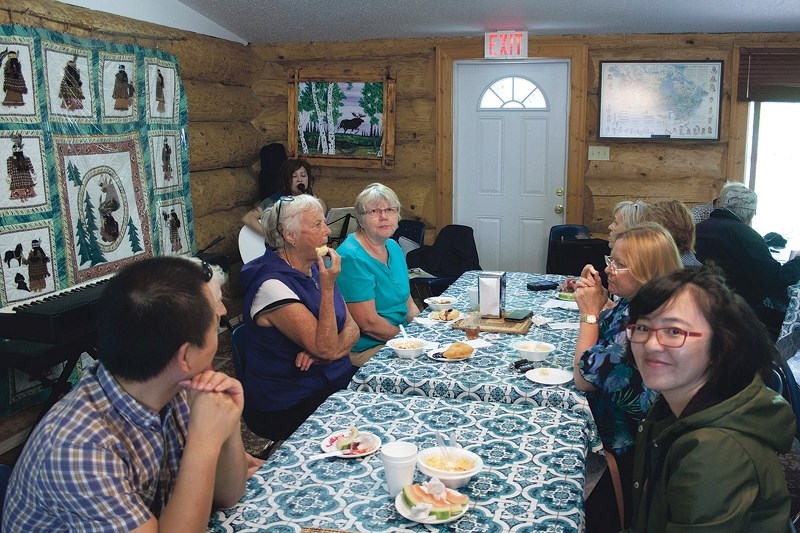Although “bridge funding” will keep their doors open until December, friendship centres across the country are in budgeting limbo after the funding process stalled within the federal government.
National Association of Friendship Centres executive director Erin Corston said a five-year plan has been successfully developed for friendship centre funding across Canada, but the process has stalled and the association cannot access the funding.
Corston also said “bridge funding” of $7.5 million had been delivered Oct. 16 from the federal government, giving friendship centres access to money to keep their doors open before the numbers are finalized.
“They’re just giving us enough to get by,” she said. “Friendship centres should have received an allocation last May, and another this month. If they don’t have it in their bank account today, they will in the next couple of days.”
Corston said the association and the federal government usually make stable, long-term agreements for funding. She said although no centres have had to shut their doors as she knows it, some had to look to banks to open or extend lines of credits.
“They’re just trying to ensure that people receive the services that they so desperately need, while having to incur additional expenses,” she said. “At the end of the day, if there is any key messages, it’s around putting lives in jeopardy essentially, by reducing the stability of the suite programs and services that friendship centres provide.”
The National Association of Friendship Centres website states that it represents 119 centres across Canada that service more than 780,000 Indigenous people living in cities and urban areas.
Corston said the Canadian government has been funding friendship centres since the 1980s.
“The friendship centre movement has been relatively secure in its ability to become the sustainable infrastructure that it is,” Corston said. “This is a really weird year. I think it’s the first time that centres have been put in a difficult position.”
The most recent model, Urban Programming for Indigenous Peoples (UPIP), was designed by the federal government to provide long-term funding stability.
Indigenous and Northern Affairs Canada spokesperson Valérie Haché said in an email that the new UPIP fund is set to provide Friendship Centres with $30.8 million annually between 2017-18 and 2021-22 for core and project funding.
“To clarify, Urban Programming for Indigenous Peoples (UPIP) is a new Government of Canada initiative that replaced the Urban Aboriginal Strategy (UAS) and its funding model,” she wrote, adding that “multi-year funding (up to 5 years) is now available under the new UPIP.”
“Department officials are talking on an ongoing basis with NAFC about their multi-year contribution agreement,” she added.
A letter dated Sept. 18 and addressed to Indigenous and Northern Affairs Canada Minister Carolyn Bennett, obtained by the Town & Country, asks that the department release funding to the association “so that Friendship Centres can continue their important work.”
“It has come to our attention that the release of funds has been stalled due to circumstances outside the Association’s control,” the letter states. “The delay has put many Centres in our area in crisis, and moreover, has undermined the stability that the UPIP program was intended to establish.”
Athabasca Native Friendship Centre executive director Laureen Houle said the local organization provides many different types of programming, works as a referral service to other organizations in town, sells hot lunches on Fridays and other special days, runs the Riddle Thrift Store, interacts with local schools, manages a community garden and also runs seniors programming.
She said the local community kitchen runs out of the centre, as well as Cree language classes and moccasin-making classes. They also keep a job board at the centre.
“What don’t we do?” she said.
She also said the total expenses for the centre are $300,000 per year.
Houle said while its focus is on Indigenous culture, the friendship centre is for everybody.
“The go-to place if you have a question, I would say, would be the friendship centre in town,” she said, adding that agencies in town often call to ask if they can help a person.
Houle said when the Fort McMurray fire forced the evacuation of thousands of people from the area, the Athabasca Native Friendship Centre helped people who had nowhere else to go.
“We had the cops bringing us people,” she said. “People that didn’t quite understand what was happening, didn’t understand why they couldn’t go home, didn’t understand the whole scope of the fire. So we had them here, explained to them they couldn’t go home right now, and found transportation for them to get to the shelters.”



